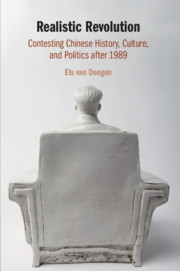Book contents
- Realistic Revolution
- Realistic Revolution
- Copyright page
- Dedication
- Table of Contents
- Acknowledgments
- Notes on Transliteration
- Abbreviations
- 1 Goodbye Radicalism
- 2 Neoconservatism and Doing Things with -Isms
- 3 Xiao Gongqin and the Yan Fu Paradox
- 4 A Tale of Two Revolutions
- 5 Chen Lai and the Max Weber Dilemma
- 6 Of Post-Isms and May Fourth
- 7 The Double Nature of Realistic Revolution
- Biographies of Prominent Intellectuals
- Glossary
- References
- Index
5 - Chen Lai and the Max Weber Dilemma
Published online by Cambridge University Press: 04 June 2019
- Realistic Revolution
- Realistic Revolution
- Copyright page
- Dedication
- Table of Contents
- Acknowledgments
- Notes on Transliteration
- Abbreviations
- 1 Goodbye Radicalism
- 2 Neoconservatism and Doing Things with -Isms
- 3 Xiao Gongqin and the Yan Fu Paradox
- 4 A Tale of Two Revolutions
- 5 Chen Lai and the Max Weber Dilemma
- 6 Of Post-Isms and May Fourth
- 7 The Double Nature of Realistic Revolution
- Biographies of Prominent Intellectuals
- Glossary
- References
- Index
Summary
- Type
- Chapter
- Information
- Realistic RevolutionContesting Chinese History, Culture, and Politics after 1989, pp. 131 - 163Publisher: Cambridge University PressPrint publication year: 2019



